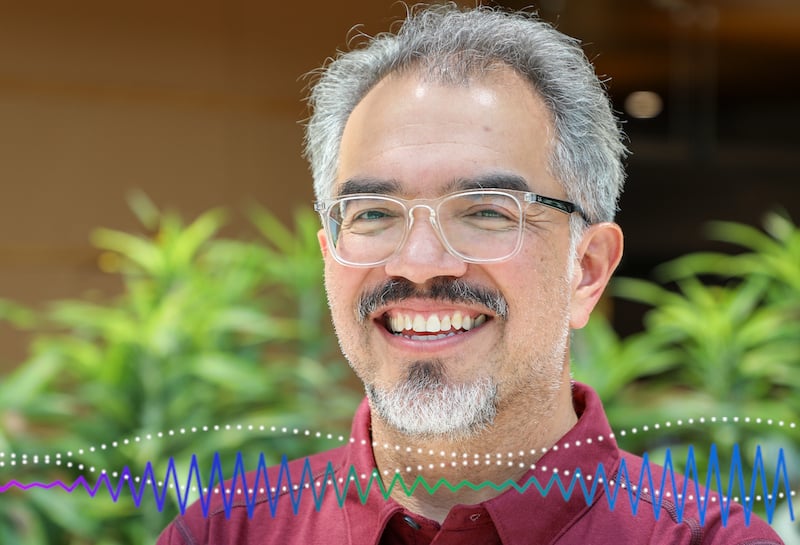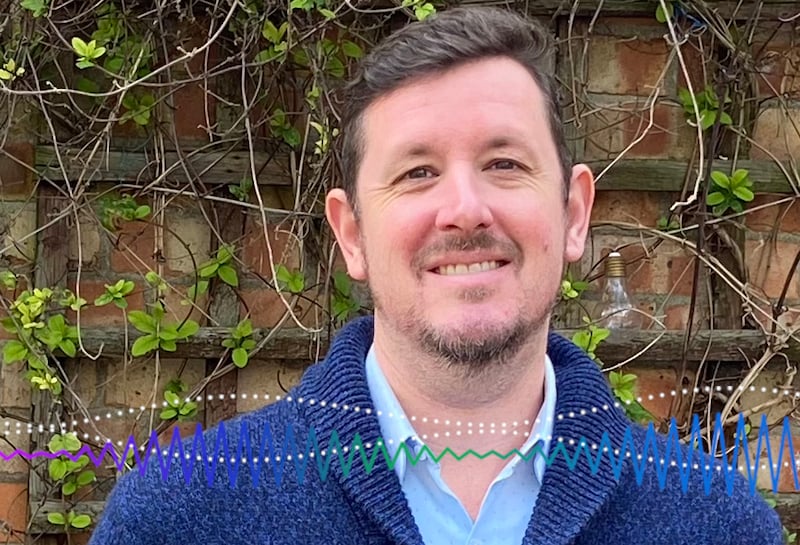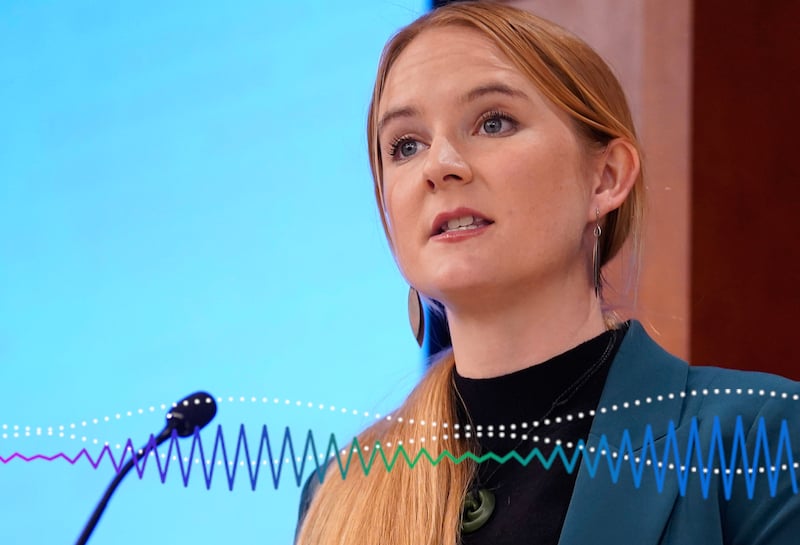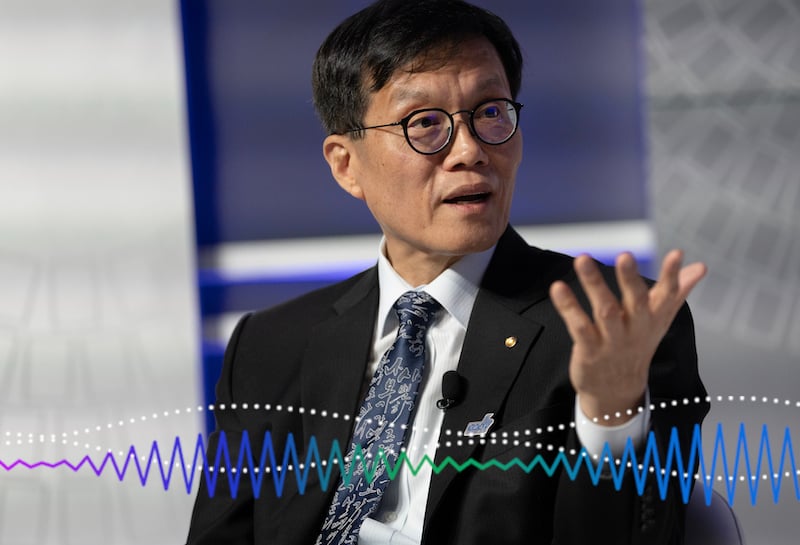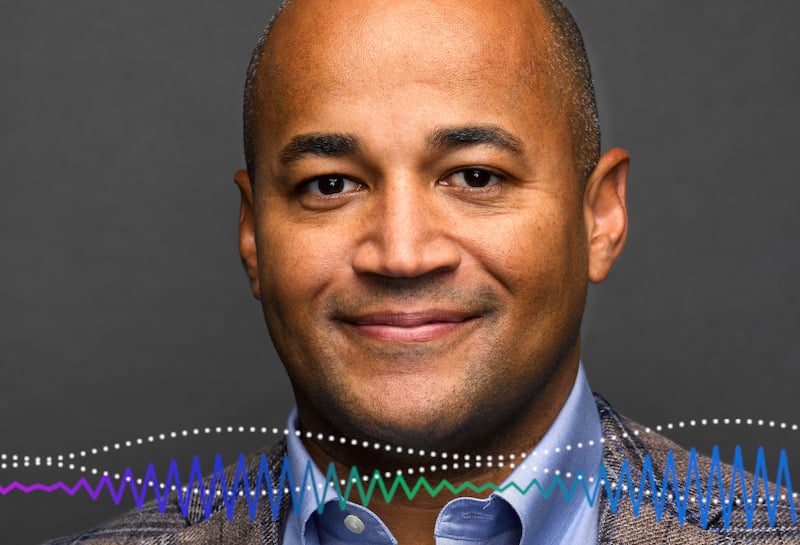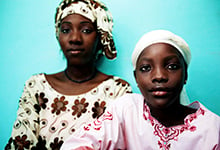
Good for Women Good for Growth: Closing Nigeria’s Gender Gap
In This Episode
Promoting gender equality can be an economic game changer. The IMF’s latest economic review of Nigeria’s economy says closing the gender gap would mean higher growth and productivity, and greater economic stability. In this podcast, IMF economist and coauthor, Monique Newiak, says Nigerian women could help transform the economy given the chance. The report shows Nigeria suffers from wide-spread gender inequality and is therefore missing out on a key ingredient to economic success. Newiak says reducing gender inequality could boost growth by one and one-quarter percent on average.
Hello, I'm Bruce Edwards, and welcome to this podcast produced by the International Monetary Fund. On this International Women's Day: how Nigerian women could help transform the economy, given the chance.
MS. NEWIAK [soundbite]: If Nigeria was to reduce gender inequality, the economy could grow on average by as much as 1.25 percentage points more.
MR. EDWARDS: Promoting gender equality can be an economic game changer. The IMF’s latest economic review of Nigeria’s economy says closing the gender gap would mean higher growth and productivity and greater economic stability. The report says Nigeria suffers from widespread gender inequality and is therefore missing out on a key ingredient to economic success. Monique Newiak is an economist in the IMF’s Africa Department and co-authored the report.
So, why is the gender gap in Nigeria as large as it is?
MS. NEWIAK: The gender gap, or gender inequality, in Nigeria is relatively high compared to peer countries—that is, countries at similar levels of development. This is the case for several reasons, because gender inequality is a multifaceted concept. So, you talk about opportunities, but we also talk about outcomes. What we see is that basically in both of these dimensions, there are gaps. [In] enrollment rates—educational—girls are less likely to go to school than boys are. Women are less likely to access health services or gain access to financial services. Legal gaps persist—at least in the application—although at the national level, laws that grant women and men equal rights do exist. These opportunities at the end translate into differences and outcomes.
So, we see in the labor market that for every four men, three women participate. Women usually participate more in the informal economy. They are more likely to work in agriculture or in a lower productivity environment. We also see that political representation of women is lower than for men—less than 6 percent of seats in parliament are held by women and less than every sixth firm has participation and ownership or senior management positions held by women.
MR. EDWARDS: I see. So, Nigeria’s economy, like many economies in the region, are facing a lot of challenges. What is there to gain by them addressing gender inequality? How high up on the priority list should this be?
MS. NEWIAK: So, closing gender gaps and promoting gender equality is smart economics. In addition to, of course, promoting human rights. This is the case for several reasons—globally, for low income and developing countries and, in particular, for Nigeria. Based on our cross-country analysis, we know that lower gender gaps are highly associated with higher growth rates across countries of all levels of development.
For Nigeria, we have conducted specific analysis to show that if Nigeria reduced gender inequality both in the labor market and in political representation; in education; in legal rights; and also by improving health outcomes for women, the economy could grow on average by as much as 1.25 percentage points more. That is a significant number. Just to put it into context, we have just received the growth outcome for 2017 and the economy grew by 0.8 percent. So, in that context, 1.25 percentage points on average is large.
Having said that, of course, these effects would differ across the country because gender equality—we always report it as an average number but there are large differences across states; the application of legal rights in terms of education gaps; health outcomes, et cetera. So, these growth impacts would vary across states.
MR. EDWARDS: So, Nigeria’s fertility rates are such that the population is going to grow, probably triple within the next 80 years or so. Can you see women having more opportunities to join this expanding workforce?
MS. NEWIAK: I think there are opportunities for everybody, including for women. To put these large population growth rates into a context, you need to see Nigeria as mainly a very young population. Fifty-four percent of the population are 15 years and younger. So, what that means is, going forward, these many young people will join the workforce which represents a tremendous opportunity, because they will work, and can be productive and contribute to growth. And indeed, to reap this potential and these opportunities, a lot of barriers need to be addressed. These relate to economic opportunities—basically educating women, providing them with similar rights or the same rights as man. To provide them with equal access to financial services and to address other constraints that affect women's bargaining power, for example, at home through implementing legislation against domestic violence.
MR. EDWARDS: So, one of the things you address in this paper that you just published is dependency ratios. You’re suggesting that if they can manage to lower those dependency ratios, this will be a key to reaping the benefit of this growing population and the growing workforce. So, what are dependency ratios and why are dependency ratios in Nigeria so high?
MS. NEWIAK: Dependency ratios are basically just the ratio of people that are not old enough, or too old, to be in the workforce compared to the number of people that are of working age. When we look into the demographic trends now of Nigeria’s population growing close to 3 percent and fertility rates still at relatively elevated level, this tells us that the number of young people will increase going forward. Which means dependency ratios will be high. The number of not-working people to working people will remain high.
This is an issue because even right now, Nigeria faces a lot of challenges in terms of provision of infrastructure and provision of health services and education. What we have seen historically from other developing countries in East Asia and in India is that when these dependency ratios decline, countries can reap a demographic dividend. A large part of India's growth and East Asia’s growth has been explained in the literature by the demographic dividend. To reap the potential from the demographic dividend, however countries usually see a decline in fertility rates and those are still high in Nigeria.
Having said that, historically countries even with declining fertility rates only saw the demographic dividend materialize when it was accompanied by policies to boost education and health outcomes. Basically, creating a more productive workforce that could then enter the labor force more skilled and more productive.
MR. EDWARDS: Nigeria is struggling with insecurity in some regions. Does conflict present additional challenges for women generally?
MS. NEWIAK: Conflict does present additional challenges for women. As we have sadly seen, recently there was another incident where 110 girls went missing in one school in the northern states of Nigeria. We see other issues as well. So, most of the tasks at home are still performed by women. Think about fetching water or cooking which requires access to electricity which is still scarce in Nigeria. Since most of these tasks fall on women, they could over-proportionately benefit from a boost in infrastructure. So, providing safe access to water, boosting electricity, and improving sanitation facilities would also address the security problem. And, having a safer environment for girls going to school would address women's challenges but also benefit development at the same time.
MR. EDWARDS: So, what has the government done to try and address gender inequality and what is the IMF proposing that they can do to put women on a more equal footing?
MS. NEWIAK: There are a number of initiatives and policies by the government and also by civil society organizations that are in place to address gender inequality in Nigeria. To make the point broader, gender policies would not be seen as only targeting women but it can be well integrated into the government's general development program. We know that the infrastructure gap is large in Nigeria. We know that educational challenges exist and we talked about the demographic dividend that will require a buildup of human capital in Nigeria.
So, we can combine policies that address women’s challenges to boost their outcomes, which will then help the Nigerian economy in the aggregate. Which means policies to invest in human capital that target women will decrease the gender gap in education, and by that they will increase the human capital stock in Nigeria as a whole. If we invest into programs that improve health outcomes for women, again, it results in a heathier population which will boost productivity again, which is good for the development agenda. So, promoting gender sensitive policies is not only the right thing to do, but it’s also smart economics and will address a lot of Nigeria's challenges.
MR. EDWARDS: That was Monique Newiak, economist in the IMF’s Africa Department and co-author of Nigeria's latest economic review that looks specifically at the economic and social impacts of gender inequality in Nigeria. You'll find the full report at imf.org. And, if you like this podcast, subscribe on iTunes or on your favorite podcast app, just look for “IMF podcasts”. You can now follow us on Twitter: @imf_podcast.
Join Us on Every Major Platform
Latest Podcasts
BEHIND THE MIC

Bruce Edwards
International Monetary Fund
Bruce Edwards produces the IMF podcast program. He's an award-winning audio producer and journalist who's covered armed conflicts, social unrest, and natural disasters from all corners of the world. He believes economists have an important role in solving the world's problems and aspires to showcase their research in every IMF podcast.

Rhoda Metcalfe
RHODA METCALFE is an independent journalist and audio producer.





